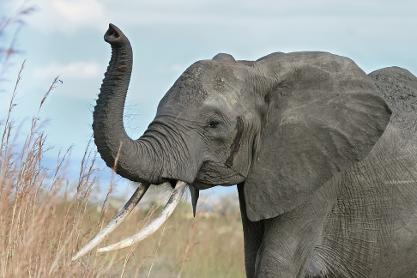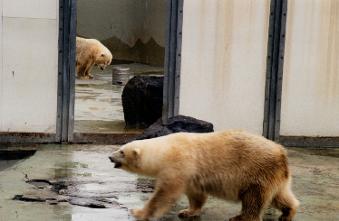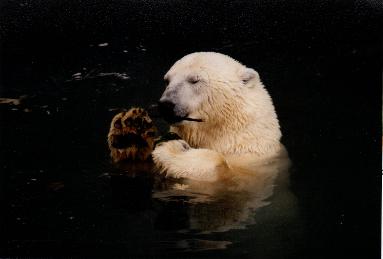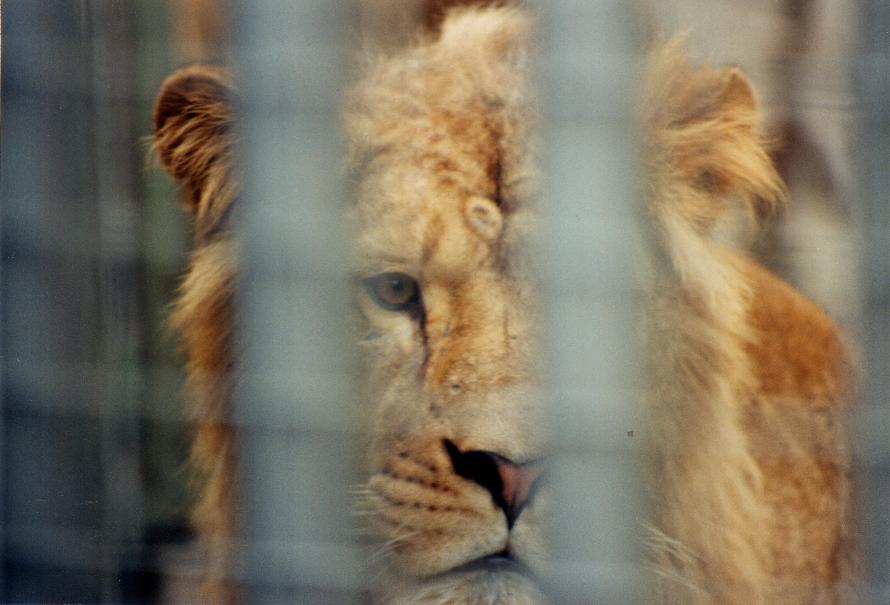Translate This Page
Human activities with regard to animals and their implications (and why we should stop them)
Circuses, Zoos and Marine Parks
Tradition: when you look at it closer, it's a rather scary concept. It justs means doing something because it's always been done like that. Some traditions are beneficial or harmless, whilst others are harmful. In my opinion, they should be evaluated for relevance under today's conditions. So let's take a look at circuses...
Suppose you came up with an idea for a new business and had to make a presentation on one of those TV shows like Dragons' Den/Shark Tank. How would you sum it up in a few sentences? Maybe something like this: "I'm going to get wild animals like lions, tigers, monkeys, bears and elephants and train them to do tricks by using bullhooks, electric prods, whips etc. I'll have tigers leaping through flaming hoops, bears lying on their backs turning balls with their feet and elephants standing on their hind legs. Then I'm going to put them in cages and take them by road and rail from town to town. I'll set up a big tent and charge a fee for people to come and see the animals perform."
You can imagine the frosty reception that such a presentation would receive. Let's not delve too deeply into the moral grounds for rejecting this concept, nor the peculiar message that is sent by forcing animals to behave in an abnormal manner. Instead let's just look at the animal welfare aspect with regard to the five freedoms that make up the minimum standard. They require that an animal be healthy, comfortable, well nourished, safe and not experiencing unreasonable or unnecessary pain or suffering. It should also have the freedom to express its normal behaviour and be free of fear and distress.
Now we've established that, let's take a look at how well the circuses do. Let's give them the benefit of the doubt on nutrition. As for the rest, it appears that they don't do very well:
- The animals spend a lot of their time travelling, so they are confined in vehicles that have to fit on normal roads. On arrival at their destination, some that are considered dangerous will be kept in their cages while others will be tethered outside. None will have the freedom to move about as they please.
- Are they healthy and provided with veterinary care?

Photo from Wikipedia
The media is rife with stories of animals that are obliged to perform while they show signs of injury or sickness. Elephants often become lame from the chains used to tether them.
- Many of the "wild" animals used in circuses such as lions, tigers, elephants, monkeys naturally live in large areas where they can roam without restriction. Being caged deprives them of their freedom to express their natural behaviour. Animals confined to small cages and pens often show sterotypic behaviour, otherwise known as abnormal repetitive behaviour, such as pacing, excessive grooming and self biting. http://www.aps.uoguelph.ca/%7Egmason/StereotypicAnimalBehaviour/library.shtml
In addition, they may be deprived of contact with a normal number of members of their species and be prevented from mating if they want to.
- You only have to look at the tools used for training to realise that they do not have freedom from fear and distress. Bullhooks http://www.thailandelephants.org/#!bullhooks/c2ow , electric prods, whips and chains are designed to inflict pain and intimidate.
So let's put an end to this tradition: it's not educational. In fact, it sends the total wrong messages that animals are to be exploited and that terrorising them is entertainment.
So the Dragons/Sharks didn't like your pitch for a circus: what do they think about a zoo? They fare a bit better than the circus: better care, bigger cages and enclosures and no torturing, oops I mean "training", to perform tricks. However once again the animals are prevented from carrying out their natural behaviour. Boredom, stress and frustration take their toll. The restless pacing of captive polar bears is so typical that the Dutch have incorporated it into their language. The Dutch word for polar bear is ijsbeer, literally ice bear and the verb for such restless pacing is ijsberen.
What about claims that it's educational? Seriously, what can people learn by watching animals in an unnatural environment where they are not able to show their natural behaviour nor live in their usual habitat with their normal social structure?
How about claims that it's for conservation? Well, very few animals in zoos are from endangered species. Even if there is a breeding program for endangered species, it's difficult to see how zoo raised animals can be released into the wild, as they are used to having food, shelter and protection provided for them. In addition, if a species is in danger of going extinct in the wild, it's probably due to a change in its environment: if the cause of that change is not addressed then reintroducing animals is not going to solve the problem. Preserving their natural habitat and ecosystem is clearly a better solution.


Polar Bears in Rotterdam Zoo Diergaarde Blijdorp (NL)
OK, so zoos don't pass the five freedoms test. What about marine parks with dolphins and orcas? After all they get given food and protection from danger and, at most, all they have to do in return, is a little bit of work every day.
You're going to have to help me out here, I'm searching for a word... What do we call a place like that where you get board and lodgings and maybe have to do a little bit of work? Where you are kept in a small room most of the time, are separated from your family and friends, kept away from your home, don't have the freedom to go wherever you want, whenever you want... ah yes, I've got it: we call it a prison.
Dolphins and orcas are social animals that live in family groups in the wild. They are used to swimming tens of miles per day. If they survive the stress of being captured in the wild, torn from their family and transported to a marine park, they will spend the rest of their days in tiny pools with dimensions of only a few metres. Is it any wonder that many show signs of frustration stress and boredom? In fact it is not unknown for dolphins and orcas to become depressed and be given anti-depressants. Some have even committed suicide by bashing their heads against the sides of their pool. http://lcanimal.org/index.php/campaigns/animals-in-entertainment/marine-parks
Too Long, Didn't Read: Keeping animals in captivity for entertainment is bad for the animals and sends the wrong message to people, especially children. Don't encourage it.

The photo of this lion behind bars was taken in Rotterdam Zoo Diergaarde Blijdorp (NL)
- (Intensive) Animal farming and slaughter for meat/organs and other animal products like dairy products and eggs
- (Intensive) Animal farming (Mammals, Birds and Reptiles) for their skin (leather) and fur
- (Intensive) Animal farming for wool
- (Intensive) Goose farming for down
- Fishing and fish farming
- Circuses, Zoos and Marine Parks
- Animal testing and animals used in medical or veterinary universities
- Hunting, canned hunting and trophy hunting
- (Cruel) Animal Sports like bullfighting and other fiestas, cockfighting, horse racing, greyhound racing, sled dogs racing, pigeon racing, pig wrestling, rodeos etc.
- Pets
- Horse and pony riding
- The use of animals in films
- Zoophilia
- Anti-speciesism and climate change
- What can you do?
